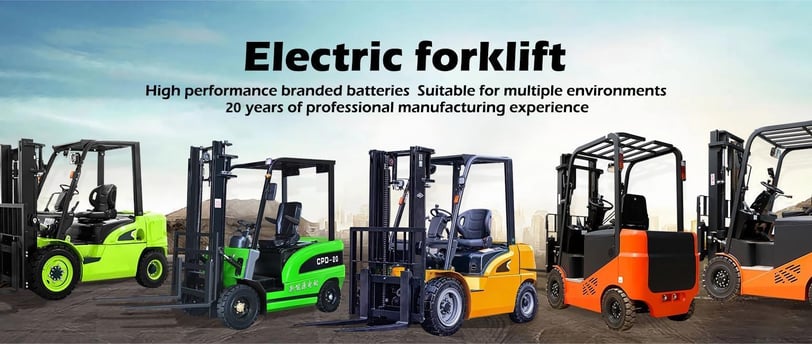Exploring the Latest Innovations in Forklift Truck Technology
Unveiling the Latest Innovations in Forklift Truck Technology
In today's fast-paced industrial landscape, efficiency and safety are paramount. As businesses strive to optimize their operations, forklift trucks have become indispensable assets. However, the world of forklift technology is constantly evolving, with manufacturers continually introducing innovations to enhance performance, productivity, and safety. In this blog post, we'll explore some of the latest advancements in forklift truck technology that are revolutionizing the way goods are handled in warehouses and distribution centers.
1. Electric Powertrains: One of the most significant trends in forklift technology is the widespread adoption of electric powertrains. Electric forklifts offer numerous advantages over their traditional internal combustion engine counterparts, including lower operating costs, reduced emissions, and quieter operation. With advancements in battery technology, electric forklifts now boast longer run times and faster charging capabilities, making them an attractive option for businesses looking to reduce their carbon footprint and operating expenses.
2. Automation and Robotics: Automation is reshaping the material handling industry, and forklifts are no exception. Manufacturers are integrating advanced robotics and automation technologies into forklifts to improve efficiency and safety. Automated guided vehicles (AGVs) and autonomous forklifts can navigate warehouses and distribution centers with precision, reducing the need for human intervention and minimizing the risk of accidents. These intelligent forklifts can also optimize route planning and load handling, further enhancing productivity.
3. Telematics and IoT Connectivity: The advent of telematics and Internet of Things (IoT) technology has revolutionized fleet management and maintenance practices for forklifts. With onboard sensors and connectivity capabilities, forklifts can provide real-time data on their performance, location, and operating conditions. Fleet managers can remotely monitor and analyze this data to identify potential issues, schedule preventive maintenance, and optimize fleet utilization. This proactive approach to maintenance helps minimize downtime and prolong the lifespan of forklifts, ultimately improving operational efficiency and reducing costs.
4. Safety Features: Safety is a top priority in the material handling industry, and manufacturers are continually innovating to enhance the safety features of forklifts. Advanced safety technologies such as collision detection systems, pedestrian detection, and automatic speed control help prevent accidents and protect both operators and bystanders. Additionally, ergonomic design enhancements, such as adjustable seating and intuitive controls, improve operator comfort and reduce fatigue, further enhancing safety in the workplace.
5. Eco-Friendly Materials: In response to growing environmental concerns, manufacturers are exploring eco-friendly materials and manufacturing processes for forklifts. Sustainable materials, such as recycled plastics and bio-based composites, are being incorporated into forklift designs to reduce their environmental impact. Additionally, energy-efficient components and systems are being developed to minimize energy consumption and maximize resource efficiency throughout the lifecycle of forklifts.
In conclusion, the latest innovations in forklift truck technology are revolutionizing the material handling industry, offering businesses unprecedented levels of efficiency, productivity, and safety. From electric powertrains to advanced automation and connectivity features, these innovations are transforming the way goods are handled and transported in warehouses and distribution centers. By embracing these technologies, businesses can stay ahead of the competition and thrive in today's rapidly evolving market landscape.


